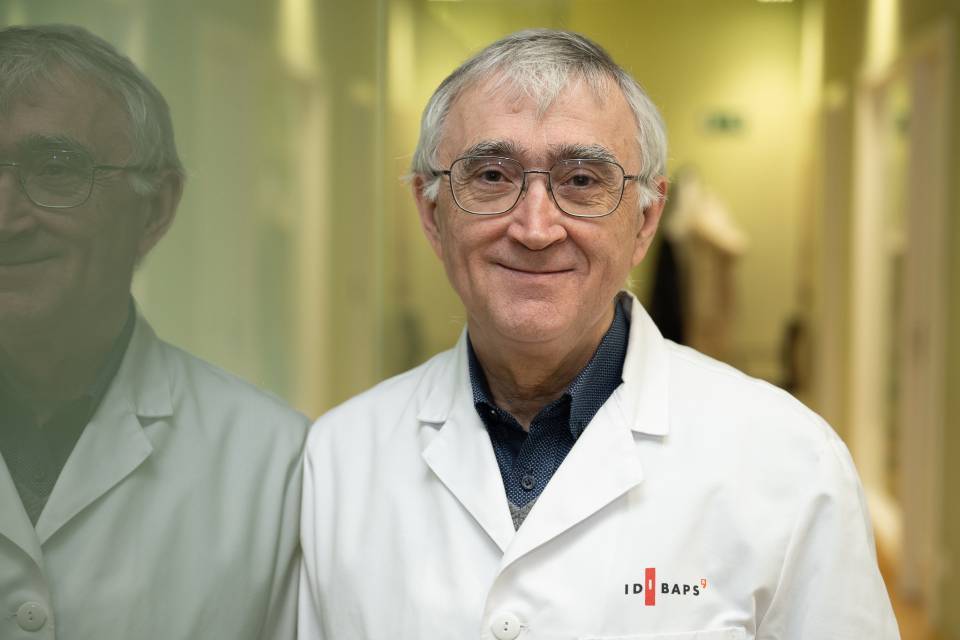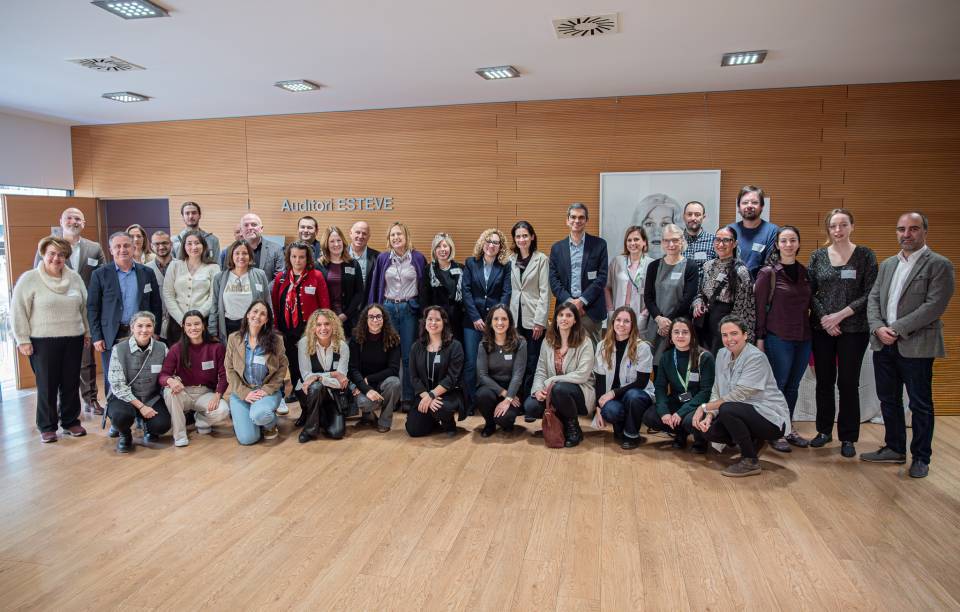The work was coordinated by Iñaki Martín-Subero, ICREA researcher and head of the IDIBAPS Biomedical Epigenomics group, located in the Esther Koplowitz Center, as well as a member of CIBERONC, and Trevor Graham, director of the Centre for Evolution and Cancer at the Institute of Cancer Research in London. The first authors are Calum Gabbutt and Martí Duran-Ferrer, and other researchers from Spain and the United Kingdom as well as Sweden, Switzerland and the United States collaborated.
Reconstructing the evolutionary history of cancer through epigenetics
Cancer does not start at the time of diagnosis, but often develops silently for years. Similar to an aeroplane’s black box, which records flight data such as origin, direction and speed, researchers have discovered that the evolutionary trajectory of cancer—metaphorically called "the black box of cancer"—is encoded in the epigenome. More specifically, it is recorded in a special type of epigenetic marker known as fluctuating methylation.
Although methylation has traditionally been thought to act as a switch that turns gene expression on or off, this study reveals an additional function of this modification. The research team discovered that the original cell that gave rise to the tumour leaves a unique methylation signature, a fingerprint that not only reveals the identity of the tumour cells, but also changes as the tumour grows and diversifies. Thanks to advanced mathematical models, the study was able to decipher these methylation patterns, reconstructing both the origin and evolution of the tumour with unprecedented accuracy, which also allows the future progress of the disease to be predicted.
The algorithm developed, called EVOFLUx, was applied to 2,000 samples from patients with different types of leukaemia and lymphoma. “We reanalysed old epigenetic data from a completely new perspective,” says Calum Gabbutt from the Institute of Cancer Research, London. “What we previously considered background noise, now reveals the evolutionary history of cancer,” adds Martí Duran-Ferrer of IDIBAPS.
“This new tool allows us to read the past history of cancer and know when the tumour originated, how fast it has been growing, and whether the tumour has created cell diversity. This is not only important for gaining a better understanding of the biology of cancer, but also has clinical applications,” adds Iñaki Martín-Subero.
Predicting the future clinical trajectory of cancer years in advance
Based on the hypothesis that knowing a cancer's past allows us to anticipate its clinical future, the study analysed samples from patients with lymphoid cancers, including paediatric leukaemias such as acute lymphoblastic leukaemia and adult diseases such as chronic lymphocytic leukaemia.
Thanks to access to anonymized medical records, the researchers were able to correlate the past evolution of the tumour with its aggressiveness. “Cancers change over time, which complicates their treatment,” says Trevor Graham. “We discovered that the initial growth of the cancer determines how it will evolve in the future, allowing us to predict how the disease will progress in each patient. This is a big step forward in personalized disease management.”
Iñaki Martín-Subero adds: “In the case of chronic lymphocytic leukaemia, a type of cancer that does not always require immediate treatment, with this new test we are able to predict when the disease will need to be treated years in advance,” and adds, “Although in this study we analysed samples of leukaemia and lymphoma, we believe that this methodology could work with all types of cancer.”
International collaboration and institutional support
The study, conducted within the framework of the Clínic Barcelona Comprehensive Cancer Center—a joint initiative of Hospital Clínic Barcelona, IDIBAPS, and the University of Barcelona— was made possible thanks to the support of the Spanish Association Against Cancer (AECC), Cancer Research UK, the “la Caixa” Foundation, the European Research Council (ERC) and the US National Institutes of Health. In total, 21 researchers from 15 institutions in five countries participated.
Article reference:
Fluctuating DNA methylation tracks cancer evolution at clinical scale. Calum Gabbutt*, Martí Duran-Ferrer*, Heather Grant, Diego Mallo, Ferran Nadeu, Jacob Househam, Neus Villamor, Madlen Müller, Simon Heath, Emanuele Raineri, Olga Krali, Jessica Nordlund, Thorsten Zenz, Ivo G. Gut, Elias Campo, Armando Lopez-Guillermo, Jude Fitzgibbon, Chris P. Barnes, Darryl Shibata, José I. Martin-Subero** & Trevor A. Graham** (*primeros firmantes, ** coordinadores del estudio). https://doi.org/10.1038/s41586-025-09374-4




